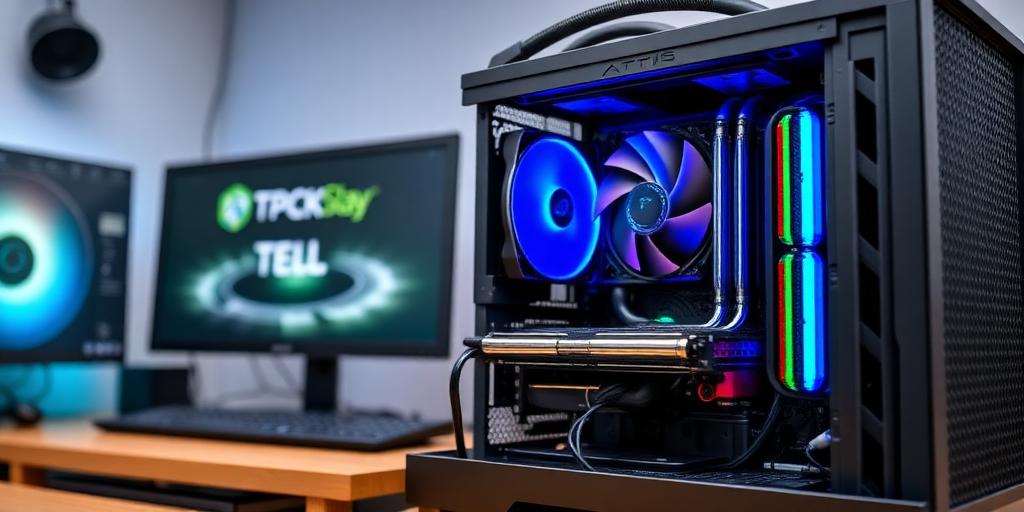When building or upgrading a PC, one of the most critical decisions you'll face is choosing the right cooling solution. The debate between liquid cooling and air cooling has been ongoing for years, with each method offering distinct advantages and disadvantages. This informative guide will break down the key differences to help you determine which cooling solution is best for your specific needs and budget.
Understanding Air Cooling
Air coolers are the more traditional and widely used cooling method. They consist of a heatsink, typically made of aluminum or copper, with fins that increase the surface area for heat dissipation. A fan is attached to the heatsink to blow air across the fins, drawing heat away from the CPU.
Advantages of Air Cooling:
- Cost-Effective: Air coolers are generally less expensive than liquid coolers.
- Simple Installation: Installation is usually straightforward, with fewer components and no risk of leaks.
- Reliability: Air coolers have fewer points of failure compared to liquid coolers.
- Low Maintenance: They require minimal maintenance; occasional dusting is usually sufficient.
Disadvantages of Air Cooling:
- Lower Cooling Capacity: Air coolers may struggle to keep high-performance CPUs cool under heavy loads.
- Size and Space: High-end air coolers can be large and may not fit in smaller cases.
- Noise: Some air coolers can become noisy at high fan speeds.
Understanding Liquid Cooling
Liquid coolers, also known as water coolers, use a liquid coolant to absorb heat from the CPU. The coolant circulates through a closed-loop system, transferring heat to a radiator, which is then dissipated by fans. Liquid coolers come in two main types: All-in-One (AIO) coolers and custom loops.
Advantages of Liquid Cooling:
- Superior Cooling Performance: Liquid coolers generally offer better cooling performance, especially for high-end CPUs.
- Aesthetics: Liquid coolers often have a sleeker, more modern look.
- Noise: Some liquid coolers can operate more quietly than air coolers at similar cooling levels.
- Space Efficiency: While the radiator takes up space, the CPU block is usually smaller than a bulky air cooler.
Disadvantages of Liquid Cooling:
- Higher Cost: Liquid coolers are typically more expensive than air coolers.
- Complexity: Installation can be more complex, especially for custom loops.
- Risk of Leaks: Although rare, there is a risk of leaks that can damage components.
- Maintenance: AIO coolers require minimal maintenance, but custom loops require more regular upkeep.
Key Factors to Consider
When deciding between liquid and air cooling, consider the following factors:
- CPU: High-performance CPUs benefit more from liquid cooling.
- Budget: Air coolers are more budget-friendly.
- Case Size: Ensure the cooler fits your case.
- Overclocking: Liquid cooling is better for overclocking.
- Noise: Consider noise levels, especially if you prefer a quiet PC.
Long-Tail Keyword Variations:
- CPU cooler comparison
- Best CPU cooler for gaming
- Liquid cooler vs air cooler for overclocking
- Affordable liquid CPU cooler
- Quiet PC cooling options
Conclusion
Both liquid and air cooling have their strengths and weaknesses. Air cooling is a reliable, cost-effective solution for most users, while liquid cooling offers superior performance and aesthetics for those willing to invest more. By carefully considering your needs and budget, you can choose the cooling solution that's best for your PC.









